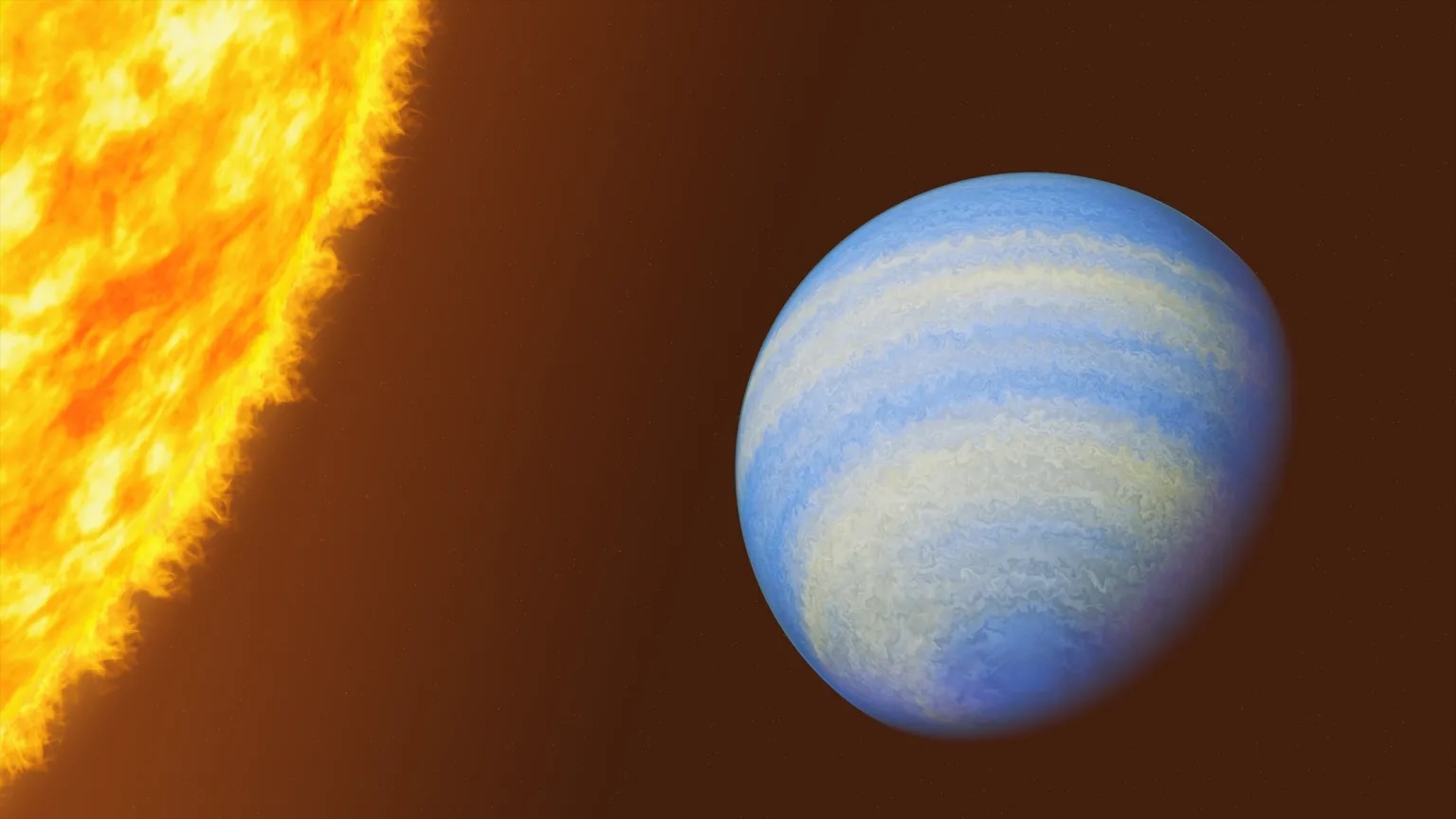10.07.2024

The planet in the study has a cobalt blue hue from a hazy, blowtorched atmosphere, according to Nasa
A faraway planet known for its dire weather also whiffs of rotten eggs, according to a new study.
Scientists studied the atmosphere of HD 189733 b, which has scorching temperatures and precipitation akin to raining glass, using data from the James Webb Space Telescope.
Hydrogen sulphide, which also exists on Jupiter, makes up most of HD 189733 b's atmosphere, and emits a bit of a pong, according to researchers. The gas is also emitted during farts.
Finding it here is one of the first detections of hydrogen sulphide on an exoplanet - or planet outside of our solar system.
"So, if your nose could work at 1000C ... the atmosphere would smell like rotten eggs," said Dr Guangwei Fu, an astrophysicist at Johns Hopkins who led the research.
The study was published in the journal Nature.
Although hydrogen sulphide is one of the gasses that indicate that distant planets might be home to alien organisms, researchers aren't searching for life on this planet because it's a gas giant, like Jupiter, and too hot.
However, they say finding hydrogen sulphide here is a step toward understanding how planets form.
James Webb is opening up a new vista in analysing the chemicals in faraway planets and so helping astronomers learn more about their origins.
"It's been quite a game changer. It's really revolutionising the field of astronomy. It has delivered the capability promised and it even exceeded our expectations in certain ways," said Dr Fu.
The researcher plans to use information from the space telescope to study more planets.
Quelle: BBC
